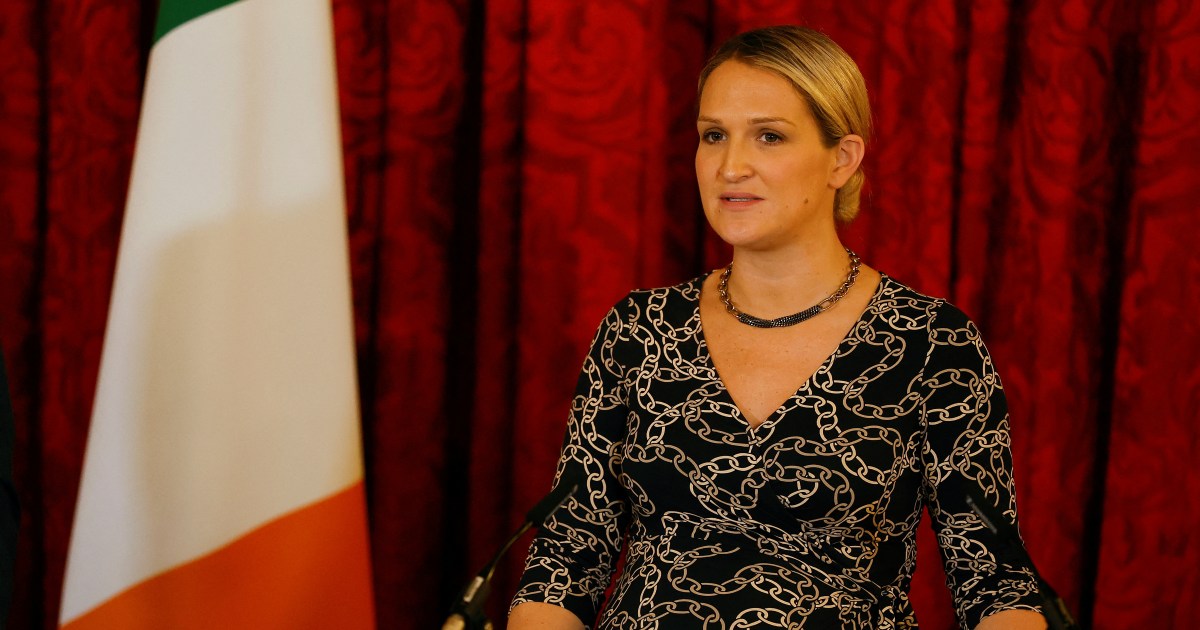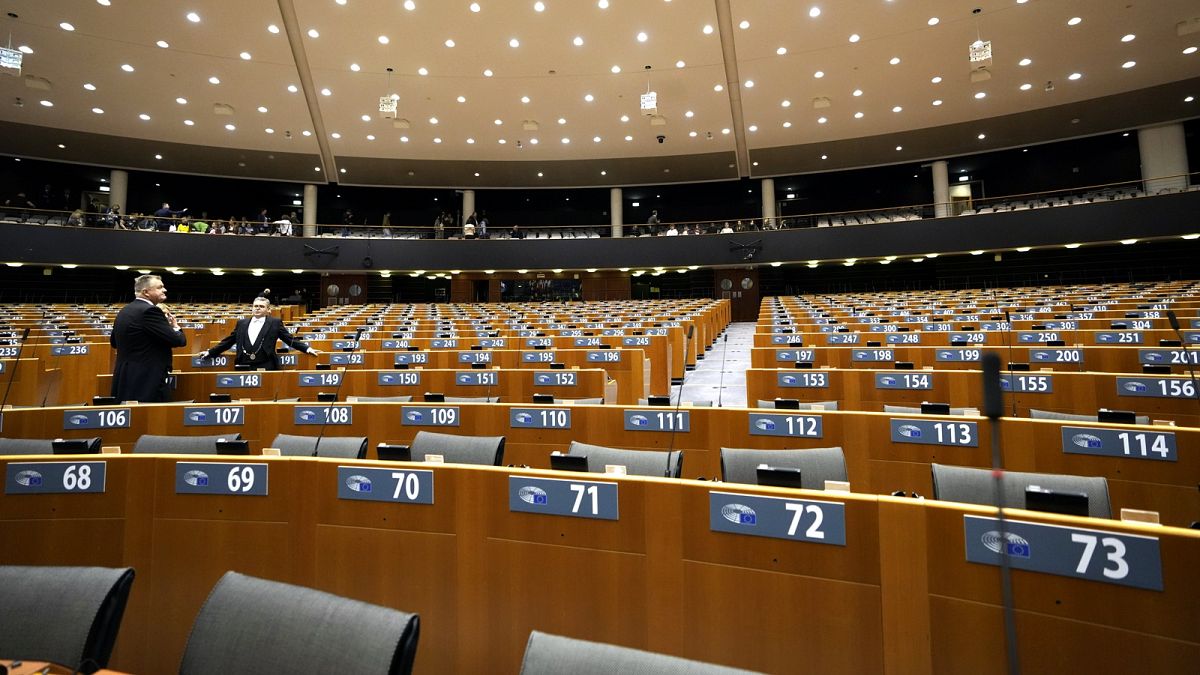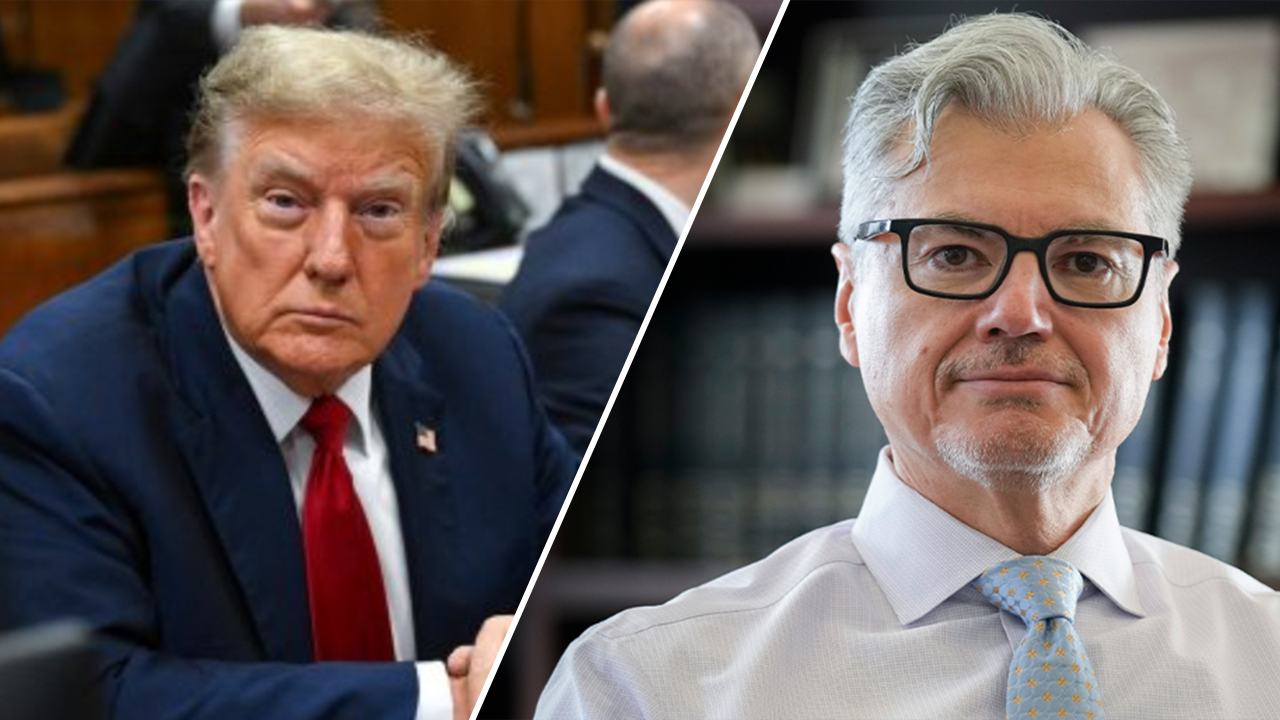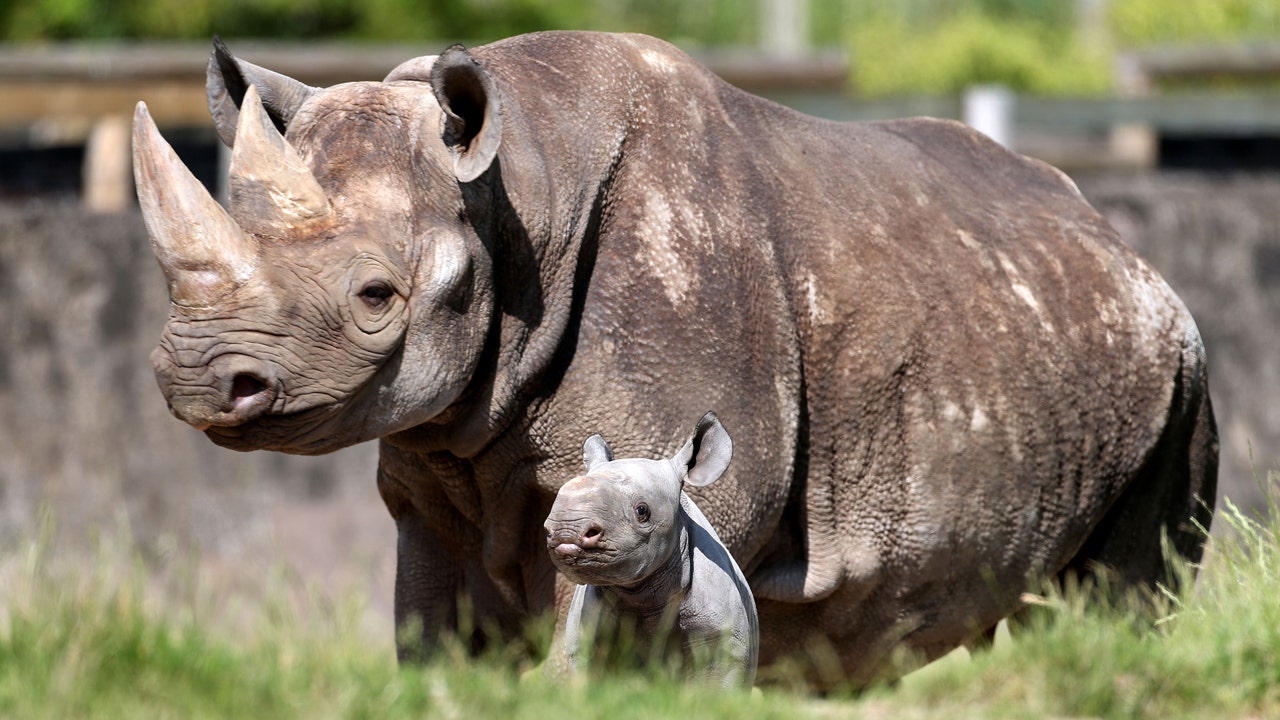World
Ireland to begin sending asylum seekers back to the UK 'by end of May'

British Prime Minister Rishi Sunak say the increase in migrant numbers crossing over to Ireland proves that his controversial Rwanda policy is working.
The Irish government has said it is planning to enact legislation by the end of May that would allow it to resume sending asylum seekers who arrive over the border with Northern Ireland back to the United Kingdom.
Justice Minister Helen McEntee said the emergency legislation would allow for faster processing of migrants.
“This has never been a panacea when we talk about returns, the most effective way that we can have an immigration system that’s firm but fair is a fast processing system and what this means is that people’s applications are turned around much more quickly,” she said.
Ireland’s High Court ruled last month that Ireland could not send back people who arrive from the UK seeking asylum because the Irish government had not specified whether they would be at risk after their return.
Taoiseach Simon Harris said the legislation is about giving practical legal meaning to an agreement in place between the UK and Ireland since 2020.
Harris has urged Westminster to stand by the agreement, which allows asylum seekers to be returned in either direction.
Helen McEntee said that Ireland hadn’t returned anyone to the UK since 2020 as the agreement had been suspended during the coronavirus pandemic.
Immigration is an increasingly hot topic in Ireland, where asylum applications have been rising sharply.
British Prime Minister Rishi Sunak claims that the increase in migrants crossing over to Ireland proves that his controversial Rwanda policy, which aims to send some asylum seekers arriving in Britain on a one-way trip to the African country, is working.
Human rights activists and migrants’ groups call the policy unethical, inhumane and costly.
Irish officials estimate that more than 80% of arrivals into Ireland came via the land border with Northern Ireland, which is part of the UK.

World
Serbian parliamentary minnow pushes for 'Russian law' equivalent
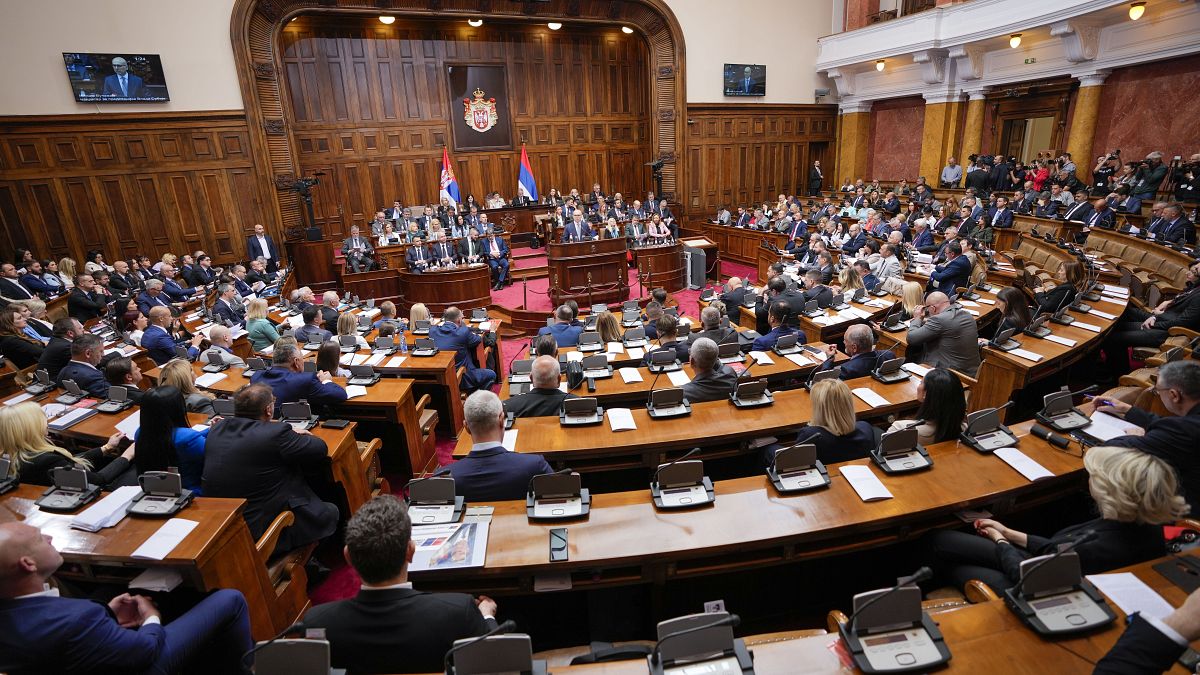
The proposed anti-foreign NGO law could bring more attention to the left-wing nationalist Movement of Socialists party, which currently has just two MPs in the 250-seat National Assembly.
Serbia’s Movement of Socialists party has announced it will draft a bill aiming to restrict the activities of foreign non-governmental organisations operating in the Balkan country.
The draft closely resembles the highly controversial law on foreign agents that is expected to be implemented in Georgia soon.
Defending the draft law, Movement of Socialists MP Bojan Torbica said, “Betraying one’s own country and people can no longer be a highly profitable activity.”
The proposed anti-foreign NGO law could bring more attention to the left-wing nationalist party, which currently has just two MPs in the 250-seat National Assembly.
“I really believe that it is a threat to the Republic of Serbia if there are NGOs that are donated from abroad and work here to propagate Kosovo as an independent state, to propagate the genocide in Srebrenica and the destruction of Republika Srpska,” said Đorđe Komlenski, parliamentary leader of the Movement of Socialists.
The three issues — two of which pertain to neighbouring Bosnia and Herzegovina — have been prominent talking points of nationalist politicians in Serbia ever since the disintegration of the former Yugoslavia and a series of bloody wars in the region in the 1990s.
While it is unclear whether Komlenski and Torbica alone can gather enough support to advance the law past the draft stage, civil society actors, such as the Youth Initiative for Human Rights, are concerned that the bill will impact Serbian society’s future.
Marko Milosavljević from Youth Initiative for Human Rights sees the move as a means of intimidating civil society and independent media.
“Through these announcements, we actually see the ban on the advocacy of certain democratic principles is kind of desireable,” Milosavljević said.
Serbian voters will go to the polls on 2 June to participate in a rerun of last year’s local election in 66 electoral units, including the capital, Belgrade.
The EU recently criticised Serbia, a candidate for EU membership, for not conducting free and fair elections, citing allegations of voter fraud.
World
Primo Cancelled at Freevee After ‘Short but Beautiful Run,’ Says Creator

ad
World
Russian physicist accused of treason sentenced to 14 years in prison
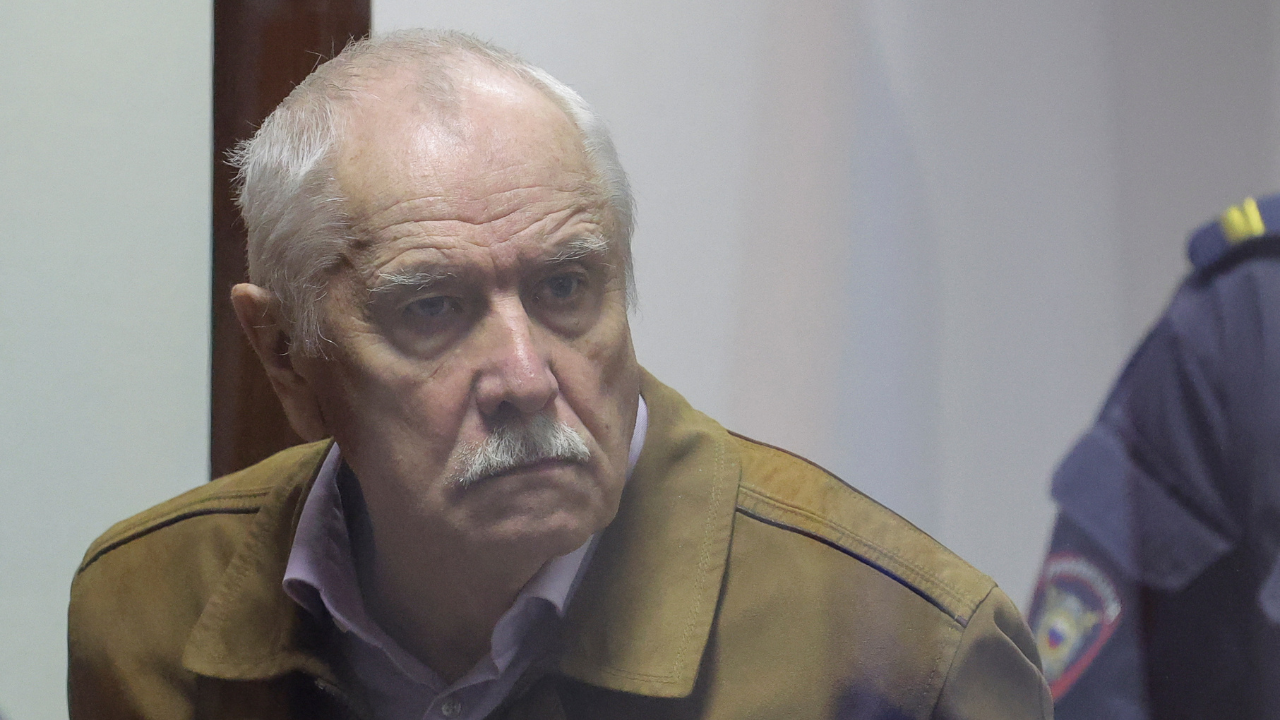
- Anatoly Maslov, a Russian physicist, has been sentenced to 14 years in prison for his alleged involvement in researching super-high flight speeds.
- This is the most recent in a series of treason cases that Russia has pursued against scientists researching super-high flight speeds.
- Maslov was a top scientist at the Khristianovich Institute of Theoretical and Applied Mechanics in the Siberian city of Novosibirsk.
Russia has brought a string of treason cases against scientists researching super-high flight speeds, an area that underpins its development of hypersonic missiles.
In the latest, physicist Anatoly Maslov was sentenced to 14 years on Tuesday.
President Vladimir Putin has boasted of Russia’s prowess in hypersonic missiles and Moscow has acknowledged using them in the Ukraine war.
RUSSIA’S MILITARY CLAIMS TO HAVE SHOT DOWN 10 U.S.-SUPPLIED MISSILES OVER CRIMEA AS BLINKEN VISITS UKRAINE
Here is a summary of the cases it has launched against scientists working in this sensitive field.
Russian physicist Anatoly Maslov, who was arrested in 2022 and accused of state treason, stands behind a glass wall of an enclosure for defendants before a court hearing in Saint Petersburg, Russia, on May 21, 2024. (REUTERS/Anton Vaganov)
ANATOLY MASLOV, ALEXANDER SHIPLYUK AND VALERY ZVEGINTSEV
All three were top scientists at the Khristianovich Institute of Theoretical and Applied Mechanics (ITAM) in the Siberian city of Novosibirsk. Maslov and Shiplyuk were arrested in 2022, and Zvegintsev the following year. In a rare open letter a year ago, colleagues said the three men were innocent and the cases against them were damaging Russian science. Details of the charges are secret, but two people familiar with Shiplyuk’s case have told Reuters he is accused of betraying secrets to China by handing over classified material at a conference there in 2017.
VLADISLAV GALKIN
Galkin worked at another Siberian university and had co-authored papers with Zvegintsev and Shiplyuk. His arrest was reported in December 2023, but BBC Russian said he was actually detained in April of that year. It quoted his wife as saying she had told their grandchildren he was on a business trip.
ALEXANDER KURANOV
Kuranov was handed a seven-year jail sentence for treason last month, after being accused of passing state secrets to foreign nationals. Maslov’s lawyer, without naming Kuranov, said the case against Maslov had been based on testimony against him from another person who got a seven-year term. At the time of his arrest in 2021, Kuranov was the general director of the St Petersburg-based Hypersonic Systems Research Facility, where he oversaw work on a new version of a Soviet-era hypersonic aircraft dubbed Ayaks.
ANATOLY GUBANOV AND VALERY GOLUBKIN
Both worked at TsAGI, the Central Aerohydrodynamic Institute based in Zhukovsky, near Moscow, where Gubanov was Golubkin’s boss.
Gubanov, arrested in December 2020, had been working on an international project called HEXAFLY-INT to develop a hypersonic civil aircraft powered by hydrogen fuel. In October 2023 he was found guilty of handing over state secrets and sentenced to 12 years.
Golubkin, arrested in April 2021, was jailed for 12 years in June 2023 after being found guilty of passing secrets to a NATO member state. However, the verdict was annulled last month and a new trial ordered.
VIKTOR KUDRYAVTSEV, ROMAN KOVALYOV AND VLADIMIR LAPYGIN
All three worked at TsNIIMash, a rocket and spacecraft center near Moscow which is a scientific subsidiary of space agency Roscosmos. Kudryavtsev was arrested on a treason charge in 2018, suspected of transferring secret information to a Belgian institute. He died of lung cancer in 2021, before the case came to trial.
Kovalyov, who worked with Kudryavtsev at TsNIIMash, was sentenced to seven years for treason in June 2020. He died of cancer in 2022.
Lapygin was convicted of treason in 2016 and sentenced to seven years, but was freed early in 2020.
-

 News1 week ago
News1 week agoSkeletal remains found almost 40 years ago identified as woman who disappeared in 1968
-

 World1 week ago
World1 week agoIndia Lok Sabha election 2024 Phase 4: Who votes and what’s at stake?
-

 World1 week ago
World1 week agoUkraine’s military chief admits ‘difficult situation’ in Kharkiv region
-

 Movie Reviews1 week ago
Movie Reviews1 week agoAavesham Movie Review
-

 News1 week ago
News1 week agoTrump, Reciting Songs And Praising Cannibals, Draws Yawns And Raises Eyebrows
-

 World1 week ago
World1 week agoCatalans vote in crucial regional election for the separatist movement
-

 Movie Reviews1 week ago
Movie Reviews1 week agoUnfrosted Movie Review: A sweet origins film which borders on the saccharine
-

 Politics1 week ago
Politics1 week agoNorth Dakota gov, former presidential candidate Doug Burgum front and center at Trump New Jersey rally



